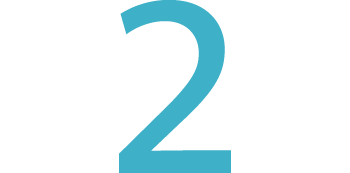
Science Communication: A Question of Perspective
As the covid crisis has shown: If scientific arguments are to be taken seriously in the public discourse and subsequently acted upon, researchers must make a greater effort to master the rules of today’s mediatized society. The following is a subjective situation report in five sequences.
Even heroes sometimes need help
Who would have thought that virologists would one day be the pop stars of science? For example, Christian Drosten's fan community alone (#TeamDrosten) must have numbered hundreds of thousands at the height of his popularity. There are even vegan T-shirts with the quote ("Oh dear. We don't want to converse at this level."). In the NDR podcast, he provided listeners with daily corona expertise. And at a federal government press conference, Drosten admonished the media to ask him only scientifically relevant questions. It's therefore hardly surprising that DIE ZEIT headlined an article about Drosten with the provocative question, "Is this our new chancellor?"
As it happens, the virologist from Berlin's Charité hospital turned out to be a stroke of luck for science communication. Internationally renowned as a brilliant researcher, he is also a natural when it comes to communicating science. But what did he get for all his media presence? A pile of prizes and awards – but also public mobbing and even death threats from protesters on the social web. Less robust researchers could have been crushed between media opinion-making, political pressure and scientific ambition. Drosten himself said in an interview with the Volkswagen Foundation that no one had prepared him for the oncoming clash between the system logics of science, politics, the media and the general public. And in some tricky situations, he would have wished for more institutional backing.
Conclusion
The lesson to be learned here is that researchers who have the courage to enter public arenas cannot expect rewards, such as bonus points for their careers or for the acquisition of third-party funding. You act on your own account and at your own risk. Prizes are only small consolation. More important would be the systemic anchoring of due recognition for commitment to the public good.

Know your target groups
Whereas, in the first months of the pandemic, science, politics and the media endeavored to avoid unreflective rhetoric so as not to confuse the worried population, the contrasts between their respective system logics have long since become glaringly apparent again. While politics and the media are well versed in dealing with each other and are able to precisely calculate the effects they have on the public at large, science is only vaguely familiar with the rules and practices of a mediatized society, and likewise with the expectations of its target groups. Politicians, for example, want factually based recommendations to legitimize their crisis management. The media, on the other hand, are not interested in the process of scientific discovery and the temporality or the inconclusiveness of research findings. They just want concrete answers to sometimes quite trivial questions: When will the football stadiums reopen? When can we go on vacation again? And, ultimately, the general public does not see the diversity of opinions voiced in professional discourse as being constructive, but rather as a sign of disorientation: "Science doesn't know anything for sure either."
Conclusion
When communicating with lay groups outside of science, one must not assume that a scientifically sound argument alone will be sufficiently convincing. A change of perspective is necessary: What does my audience expect from me? What can I take for granted? Society needs to have pilots – passionate and tactful experts who engage in argumentative dialog and are above all capable of explaining things and making them comprehensible. Trust is rooted in comprehension.

Strengthening science journalism
Never before has the need for fact-based information been so great as during the pandemic. The traditional mass media experienced an unprecedented surge in demand. What a pity that so many science journalists became the victims of cost cuts in the years before, leaving a gap in many editorial teams. There is now a lack of competence in distinguishing the relevant from the irrelevant in the sheer flood of new Covid-19 studies. The result has been the dissemination of a lot of unfiltered nonsense from preprint servers, and the current state of research is being neglected. Moreover, many so called experts have found outlets for completely unfounded statements. They contradict the overriding consensus of scientific opinion in a way that attracts public attention, but has nothing to do with the facts.
Personalization, dramatization and emotion are the commonly effective tools in the media's battle for attention. This mix has also transformed the social web into an “outrage machine” in which the various camps fight tooth and nail in defense of their respective positions. Mistrust and conspiracy theories are mushrooming and increasing the number of science skeptics. When press offices and mass media also participate as post-factual agencies in misleading the population, not only science falls into doubt, but the social consensus also becomes unbalanced. In the spring of 2021, for example, the University of Hamburg issued a press release promoting a paper – outrageous by scientific standards – written by a professor who claimed to have proof that the corona virus had escaped from a Chinese laboratory. Although possible, this is a long way from being proven. The more respectable media criticized the press release – the BILD newspaper, though, fed the topos of a conspiracy "by left-wing German politicians and journalists", who apparently would have preferred that "the study had been completely concealed".
Conclusion
The undeniable erosion of journalistic quality should not obscure the fact that serious science journalism has performed outstandingly well throughout the Covid-19 crisis. It remains an indispensable intermediary and partner for communicating science to a broad audience, strengthening fact-based discourse, and providing critical clarification. This is another reason why it is high time that the scientific system and politics look into the precarious situation of science journalism.

Letting professionals off the leash
It would be a mistake to believe that science can make up for the deficit in journalism itself. Even if the glossy brochures of research institutions might at first glance look like journalistic science magazines – they are not; they are institutional PR. Educating society about science, which was the mission behind the boom in (university) press offices in the early 1980s, has also long since ceased to play the most important role. Instead, the departments are torn between conflicting goals: Between image cultivation, student marketing, lobbying for third-party funding, research PR and the top-down praise of academic leaders. Added to this is the frequent lack of appreciation as a professionally working specialist department. The patronizing interference of non-specialists at the decision-making and management levels often prevents a clear strategic orientation – also with regard to the scientific literacy of the various target groups.
Conclusion
The communications departments have long since recognized that children's universities and science slams are not an effective means of maintaining and strengthening society's trust in science, and would realign some of their work – if only the higher-ups would let them. The hopeful view turns to Freiburg, where an experienced practitioner of science communication was recently appointed to the rectorate. Could this be a model for the whole of Germany?

What are we waiting for?
While "Corona" continues to drive the transformation of the opinion and media society with partly creative, partly destructive dynamics, the science system talks a lot – but does little. There is no lack of voluntary commitments (e.g., Max Planck Society), of analysis (Science Council), of recommendations for action (working groups from Akademien-Union, acatech, Leopoldina), of think tanks (#FactoryWisskom of the BMBF), of guidelines for good science PR (Bundesverband Hochschulkommunikation, Wissenschaft im Dialog e.V.). What is lacking, and has been lacking for years, is the will to implement all the piled-up recommendations out there.
Conclusion
A look at the "science barometer" of the last few years shows the following tendency: One third of the population has trust in science, one third simply cannot be reached for science topics – and one third remains undecided. The souls of these people must now be won over so that they do not drift into the camp of the demagogues. The threat posed by the pandemic has driven scientists around the world to previously unimaginable peaks, for example in the development of vaccines. Why should it not also be the signal for finally starting a dialog with the public with the necessary decisiveness and strategic clarity where it needs to be conducted: On all channels?


